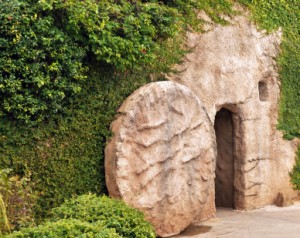
As I’ve gotten older, I’ve learned to appreciate people who can reduce the complex to the simple. When it comes to discussing ultimate issues like Truth and religion, this is even more important.
Let’s face it, if an idea, argument or truth is not simple enough, you won’t understand it. And if you don’t understand it you won’t remember it. And if you don’t remember it you won’t be able to explain it to others.
Apologetics is the discipline of giving a defense of Christianity. It is the fulfillment of the commandment of “always being ready to make a defense to everyone who asks you to give an account for the hope that is in you…” (I Peter 3:15). In other words, all Kingdom citizens are to be apologists.
There are many different approaches to apologetics, but I prefer the one that is most simple, and interestingly it is the one Jesus and the Apostle Paul used.
When the Jewish religious leaders asked Jesus for proof He was the Messiah, Jesus said that after they had killed Him, He would be resurrected from the dead on the third day. (John 2:18-21).
The Apostle Paul carried Jesus’ claim to its logical conclusion. Paul said if Jesus’ resurrection did not occur, Christianity is a lie, you (Christians) are still in your sins, and you are lying to the world. (I Corinthians 15:12-19).
Now I’ve heard people say that even if Christianity is not true (if the resurrection did not happen), then they would still be a Christian because the morality of it is so much better than any alternative.
But that’s not what the Apostle Paul says. He says if the resurrection is not an historical fact, “… let us eat and drink, for tomorrow we die.” (I Corinthians 15:32).
The resurrection either happened or didn’t. If it didn’t, Christianity is a lie. If it did, Jesus is who He said He was and He deserves the worship and obedience of all men.
I’m a trial lawyer who makes his living understanding the importance and weight to be given evidence. I’m a Christian because I believe the evidence proves Jesus’ resurrection is an historical fact. GS




